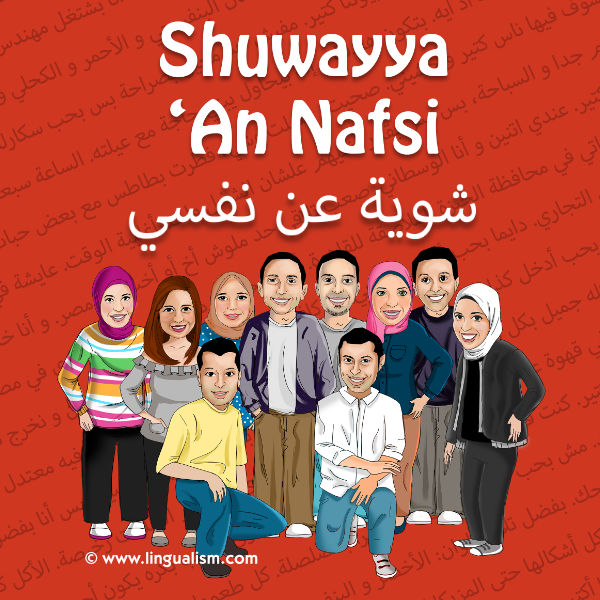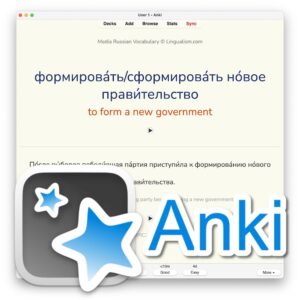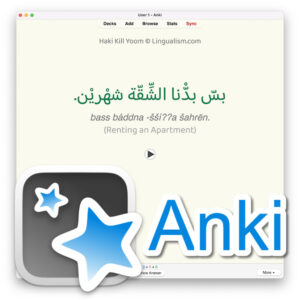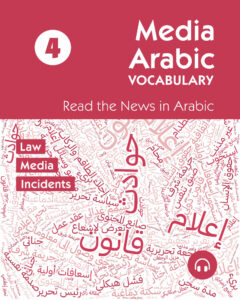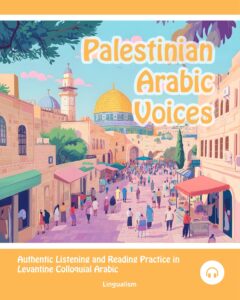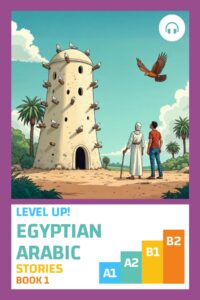Shuwayya ‘An Nafsi (شُوَيّه عن نفْسى šuwáyya 3an náfsi A Little About Myself) and Kamaan Shuwayya ‘An Nafsi (كمان شُوَيّه عن نفْسى kamān šuwáyya 3an náfsi A Little More About Myself)will be of tremendous help to independent language learners who want to develop their conversational skills and increase their Arabic vocabulary.
The books present the results of a survey given to 10 Egyptians. Each of the section in the book begins with a question from the survey followed by the 10 responses and a breakdown of the vocabulary and concludes with a page where you are encouraged to give your own answer to the question using newly learned words and phrases.

Above, we see the first question form the first book. It’s very simple: “What’s your name?” It would be easy just to answer “My name is ___.” → اِسْمى ـــ , but by using native speakers’ extended responses as examples, you can add something more to your answer to stimulate natural conversation. Here’s the first respondent’s response:

Nine more respondents follow, giving you a variety of unique responses on which to model your own personalized response.
The first book contains 30 sections. Each response is between 10-15 words long. The second book contains 36 sections with slightly longer responses (15-25 words long).
The books are best suited for lower-intermediate to upper-intermediate students. However, they have been designed in such a way that they can be an effective learning tool for learners at all levels:
For beginners:
- Even the most basic words are found in the glossaries with their English translations.
- Even if you find the sentences challenging and cannot understand some of the underlying grammar at work, you will be able to pick up useful phrases while building your vocabulary.
- All of the materials appear in three forms: Arabic script, phonemic transcription (i.e. pronunciation in the Latin alphabet), and English translation.
For more advanced learners:
- The texts appear again in the back of the book without voweling (tashkeel) or translations, to provide a more challenging reading experience without distractions.
- Modern Standard Arabic (MSA) translations of the texts are also given for learners who are more proficient in MSA and can benefit from comparing the similarities and differences between it and Egyptian Colloquial Arabic (ECA).
The accompanying audio tracks make up an invaluable part of the learning process, allowing you to hear and mimic native speakers’ pronunciation, pitch, intonation, and rhythm.
This article was adapted from the Introduction of the books Shuwayya ‘An Nafsi and Kamaan Shuwayya ‘An Nafsi.

